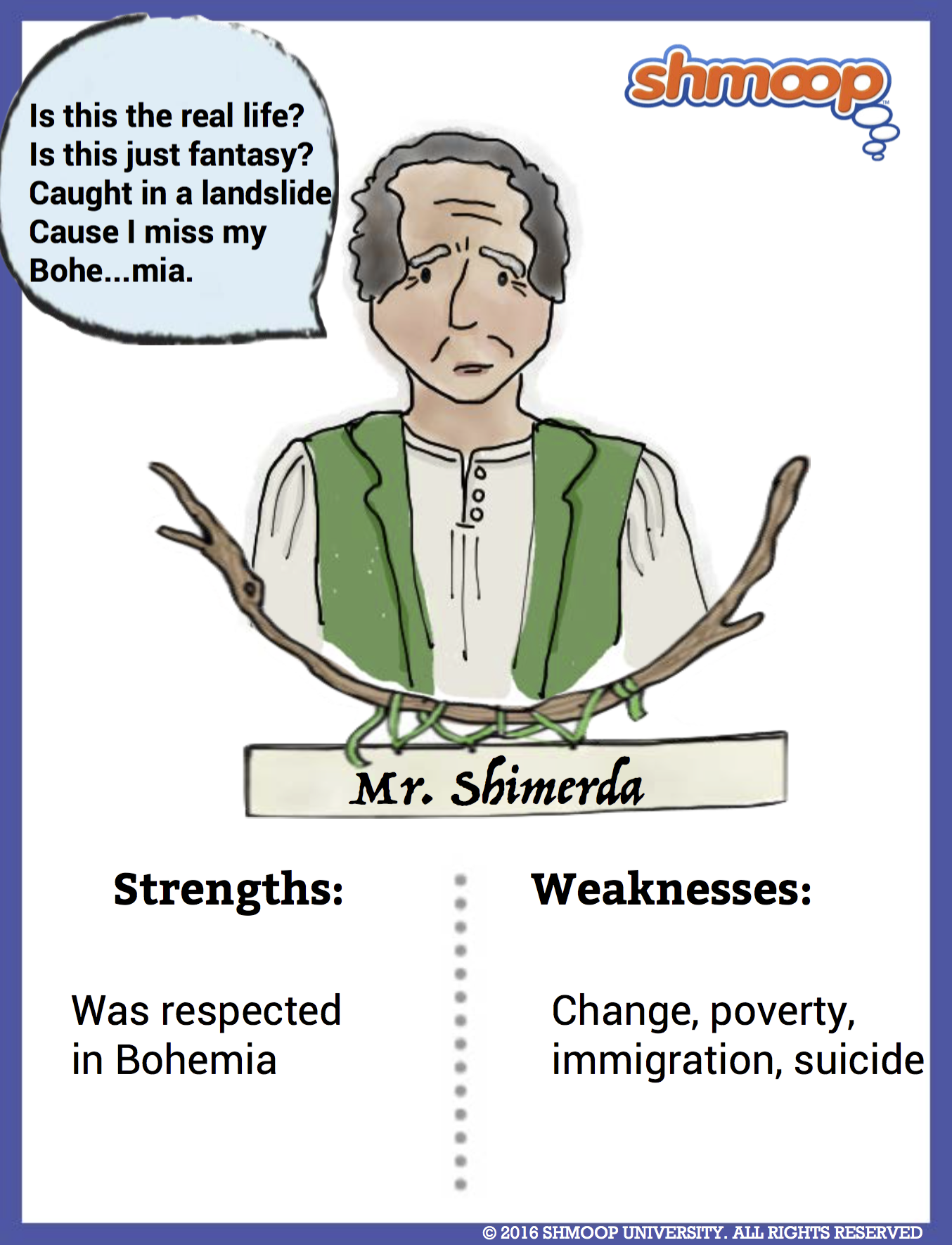Character Analysis

(Click the character infographic to download.)
Mr. Shimerda is not a happy man. Jim's keen emotional sensitivity allows him to pick up on this early in the novel. In addition, there are several conversations between him and Ántonia that foreshadow the man's eventual suicide.
Ántonia explains to Jim that her father didn't want to leave Bohemia in the first place, and that her mother and Ambrosch talked him into it. We learn that his family was well respected and that they had money back in Europe. Now they've come to a place where they're dirt poor and treated like second-class citizens. Mr. Shimerda's plight represents the toughest side of the battles that immigrants faced coming to the American West in the early 1900s.
When Mr. Shimerda does commit suicide, it brings another issue to the forefront – that of religion. Religious difference represents another cultural divide between the local Nebraskans and the immigrants. Most of the locals are Protestant, whereas the immigrants are Catholic. The problem with Mr. Shimerda's suicide is that it's considered a sin. As a result, he's not allowed to be buried in a religious cemetery. The family has to grapple with both religious and personal principles to decide on the best course of action.
As the funeral approaches, we get a chance to see Jim's keen emotional intelligence at work as he grapples with these religious issues himself. "I remembered the account of Dives in torment, and shuddered," he narrates. "But Mr. Shimerda had not been rich and selfish: he had only been so unhappy that he could not live any longer" (1.14.31). Jim also finds great meaning and reverence in the man's death. He says of Mr. Shimerda's grave:
I never came upon the place without emotion, and in all that country it was the spot most dear to me. I loved the dim superstition, the propitiatory intent, that had put the grave there; and still more I loved the spirit that could not carry out the sentence – the error from the surveyed lines, the clemency of the soft earth roads along which the home-coming wagons rattled after sunset. Never a tired driver passed the wooden cross, I am sure, without wishing well to the sleeper. (1.16.13)
That Jim finds beauty in Mr. Shimerda's death is a real insight into his character.